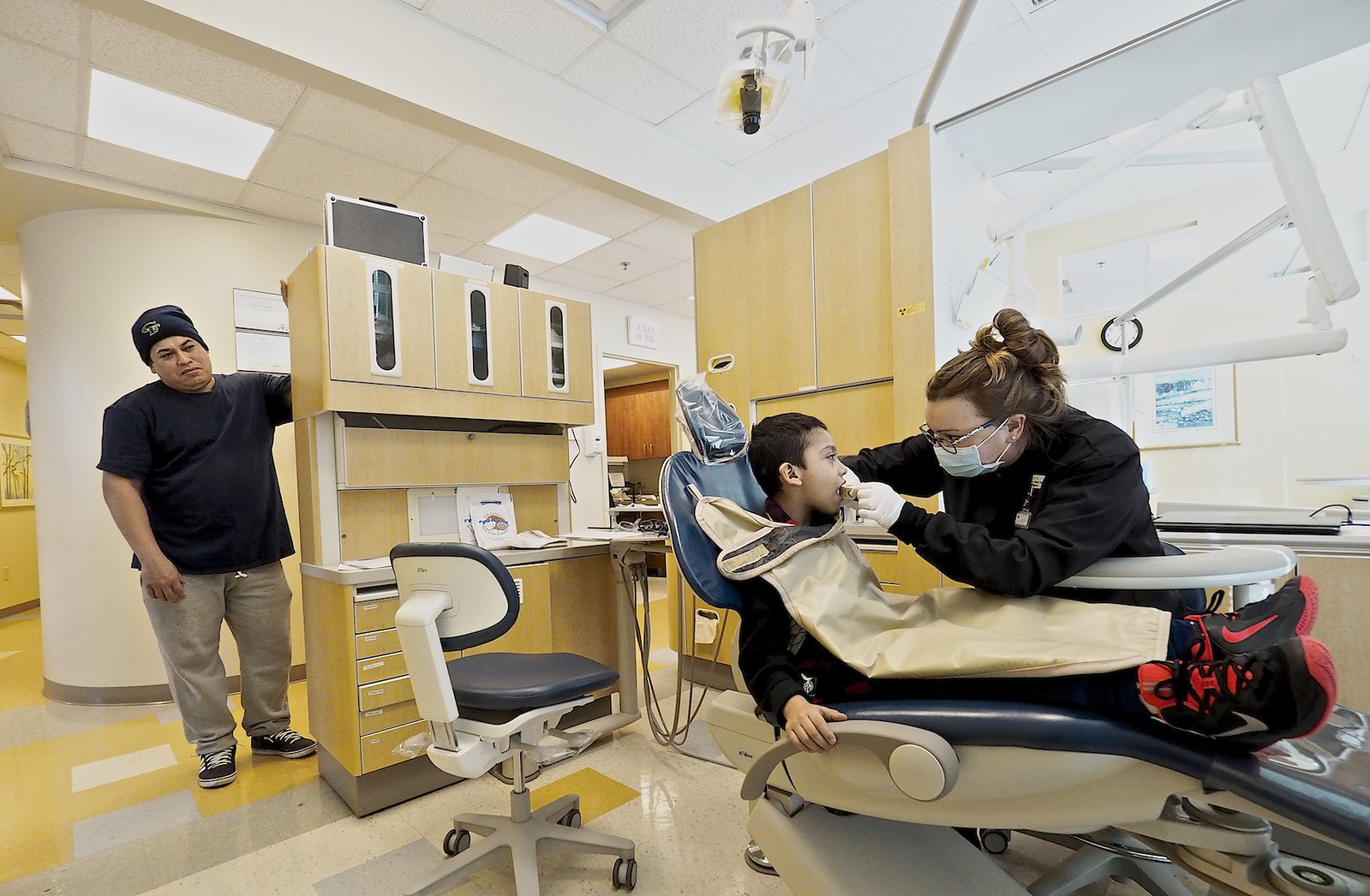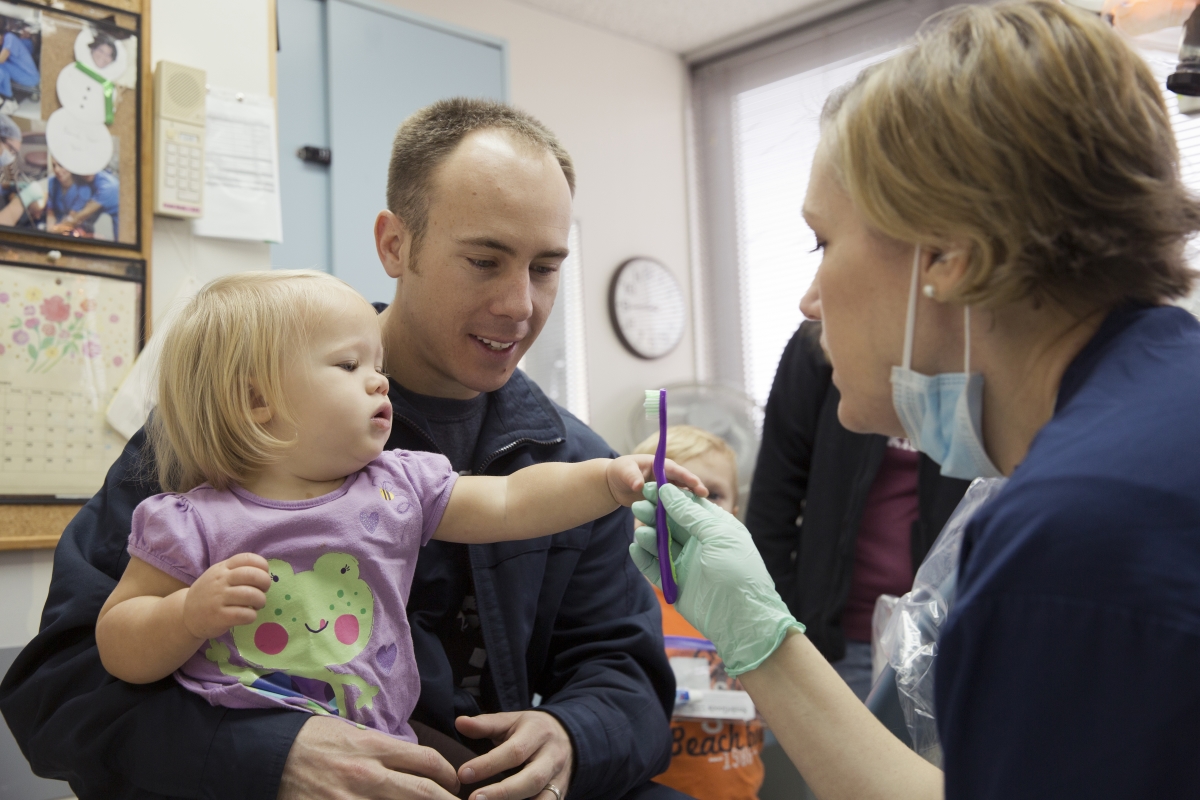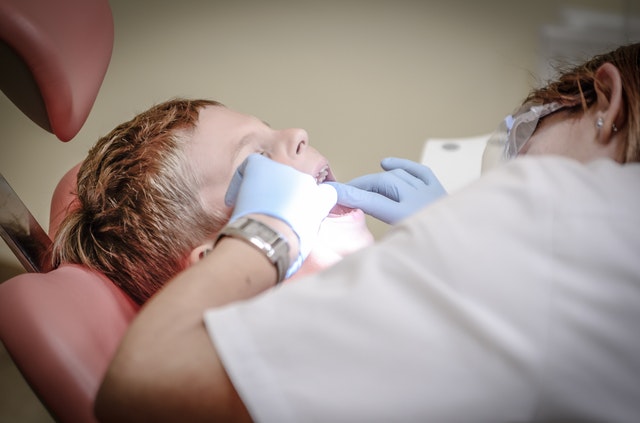Updated 6/22/2020
Children can have a range of reactions to a dentist, from fearful anxiety to curiosity. Preparing a child for that first dental visit can help cut down on the fear and anxiety to create a better experience for everyone involved.
Some parents may be tempted to put off checkups because of their child’s reluctance. But along with at-home dental hygiene, visits to the dentist are essential for their dental health. The first appointment should come much sooner than some parents realize. Experts suggest scheduling that first dental visit within six months of the appearance of the first baby tooth, or by the first birthday, whichever comes first.
Why Children Sometimes React Negatively to the First Dental Visit

If a child has never been to a dentist before, he or she has no experience on which to build expectations. Everything is new to them—and sometimes scary. Even if they have been to a dentist before, a new office or a new dentist can cause anxiety, too.
Now consider some of the things that a child might experience during that first visit:
- They might have to wait in a waiting room for some time before seeing a dentist or oral hygienist. Most kids don’t like to wait or sit still, so they will need something to occupy their attention.
- A dentist’s chair is surrounded by many tools. Most of these are complex tools that your kids will not have seen before. Your kids might be curious about them, but they could also be fearful of them.
- A dentist’s office will also have a lot of new sounds: Machines that whir, buzz, and bubble; people answering the phone to set appointments; sounds of other people getting their teeth cleaned. If kids don’t recognize these sounds, they can be somewhat frightening.
- The dentist, hygienist, and receptionist will all be adults that your child doesn’t know. Most children are (rightly!) nervous about strangers. They might act overly shy and reserved, or act out in an attempt to manage their fear.
- They may worry that the dentist or hygienist will hurt them. They might remember stories from friends, family, or even TV that portray dental work as something painful and unpleasant.
With all of these experiences, it’s no wonder some children feel “out of sorts” when visiting a dentist for the first time!
And when a child is not comfortable with his or her environment, they can have a number of reactions. They might:
- Act shy and withdrawn.
- Cry or throw a tantrum.
- Get overly excited, running around, and climb on things.
- Say inappropriate things.
- Beg you to leave or do something else.
- Constantly demand your attention, or demand to be comforted.
It is important to remember that these reactions are completely normal and age-appropriate. Your child is not trying to be difficult. They are simply trying to cope with their fear in the situation.
That said, many children have a positive experience during their first dental visit. He or she might simply be curious about the new sights and sounds around them. They can feel comfortable around your new dentist, especially if that dentist is experienced at interacting with kids. It is best for parents not to assume that their kid will react negatively. Children will naturally pick up on your anxiety, which could inadvertently make the situation worse.
Preparing Your Child—and Yourself—for the Visit

The best way to ensure a calm and successful first dental visit is to take a little time to prepare your child and set expectations about what will happen.
- Start with a positive attitude yourself. Children are amazingly perceptive when it comes to the attitudes of others, and they will mirror your reactions to the situation. This is especially true if you fear the dentist yourself. Take a moment to make sure you are calm, relaxed, and cheerful. Interact as politely as you can with the staff at the office. Try to project the attitude that a dentist’s visit is fun, and that the dentist is a friend who is there to help.
- Talk to your child, in an age-appropriate way, about the sequence of events during the visit. “First we’ll say hi to the receptionist, then there will be a little wait while they get ready, then we’ll go into a little room and you’ll sit in the big chair…” When kids know what to expect, they are much more able to deal with each event as it happens.
- “Play” dentist at home. Try making a game of having your child “check” your teeth, then check theirs. There are even toy dental instruments available so they can role-play and see the visit as something fun.
- Create a “ritual” surrounding the experience. Another way to help children process what is happening is to create little rituals around the visit. For example, maybe you bring some special books to read while in the waiting room. Or perhaps you can pick out a special “going to the dentist” outfit.
- Recruit older siblings to help. If your child has an older brother or sister who has been to the dentist (and has had mostly positive experiences), consider bringing the sibling along or scheduling their appointments together. Not only will this provide a distraction, but the older sibling can model the right kind of attitude and behavior for the office.
- Don’t forget to have them brush. The visit will go more smoothly if your child has already brushed his or her teeth before the visit. This makes it easier for the dental hygienist to examine your kid’s teeth, and to see how well they are brushing. So try to remember to have your child brush before going out the door!
Still Feeling Anxious about That First Dental Visit?
The first dental visit can make both parent and child nervous. No parent wants to see their child upset or frightened. Remaining calm and ready for how a child can react will help prepare you both. Parents may also want to consider a pediatric dentist, as they have more experience treating little ones.
An early start on good dental health is important for all kids. A positive experience at that first dental visit can start them on a lifetime of good oral care and overall health. If you need to find a dentist for your child, use our online search tool for one in your area.


